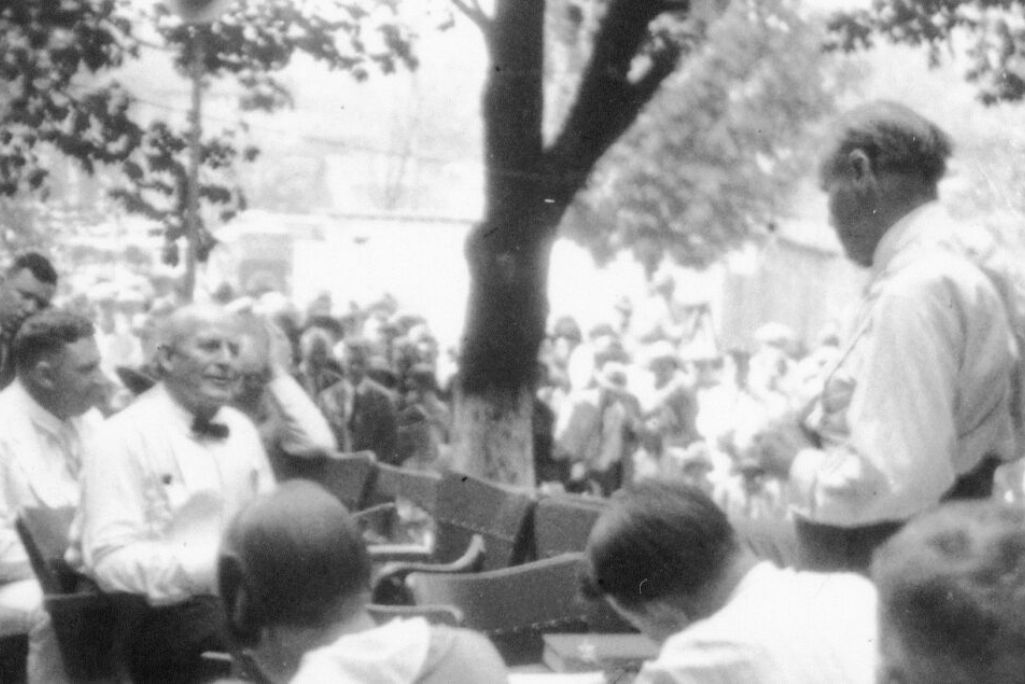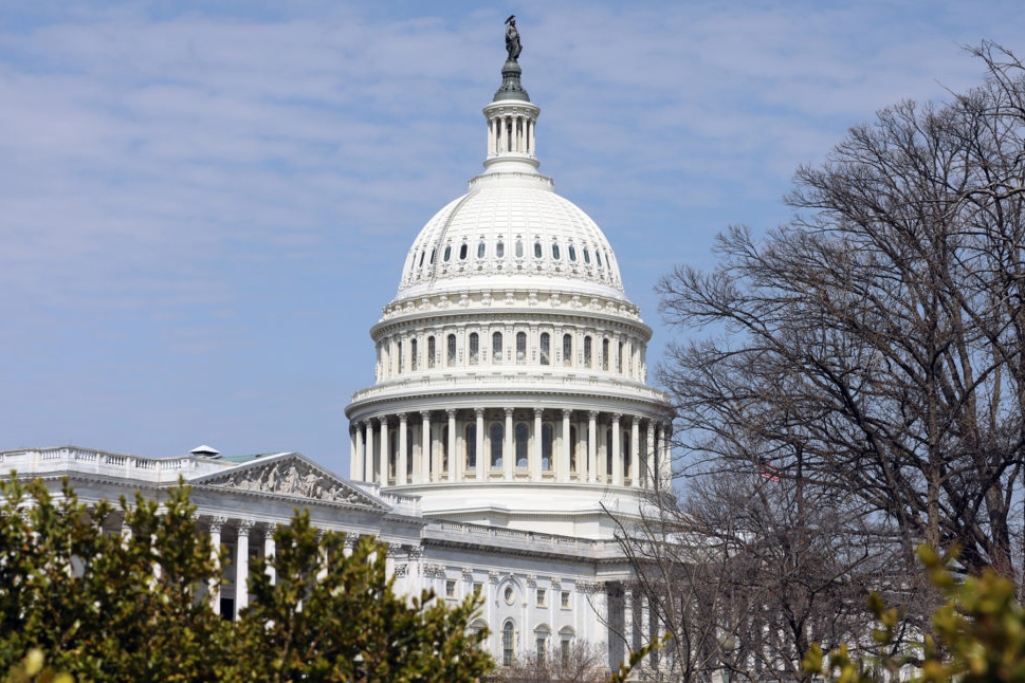
William Jennings Bryan (seated, left) is questioned by defense attorney Clarence Darrow during the 1925 Scopes Trial in Dayton, Tenn. The trial was moved outdoors due to extreme heat.
DAYTON, Tenn. (BP) — The setting for the “Trial of the Century” was the small county-seat town of Dayton, 40 miles north of Chattanooga. Better known as the “Scopes Monkey Trial,” it took place July 10-21, 1925.
Two nationally known lawyers were brought in to argue the case, and the trial became a media sensation. It was the first trial to be broadcast nationally on the radio. America tuned in to follow the deliberations.
The summer heat was oppressive as the trial began. The hot, crowded courtroom was abandoned, and the trial moved to the courthouse lawn under a canopy of trees. The trial, initiated by the ACLU, challenged a Tennessee law, the Butler Act passed in January 1925, which outlawed the teaching of evolution in public schools.
Conservative Presbyterian layman and former three-time Democratic presidential candidate William Jennings Bryan (1860-1925) represented the State of Tennessee. Bryan was known as a champion of the common people, rural farmers, ranchers and small business owners. He held a deep reverence and belief in the authority of the Bible, which guided his life and formed his views against Darwinism and Modernism.
The eloquent and polished criminal defense attorney was Clarence Darrow (1857-1938) from Chicago. A professed agnostic, his doubts about the existence of God played well into his criminal defense strategy, because creating doubt might sway the jury to find his client not guilty. In some ways, it was not his client on trial — it was science against religion, modernism against fundamentalism.
In the end, Dayton public schoolteacher John T. Scopes was convicted of violating the Butler Act and was fined, but was later acquitted on a technical issue. After the acquittal, Tennessee Gov. Austin Peay proposed new legislation saying if evolution could be taught in public schools, so could the Bible. But it was the court of public opinion that would matter the most.
Much of the trial’s impact on Southern Baptist life had already taken place in mid-May, when Southern Baptists adopted the Baptist Faith and Message as their first denominational confession of faith in the convention’s 80 years of existence.
Southern Baptists had historically been opposed to adopting a statement of faith, but the media coverage of the upcoming Scopes trial and the pretrial hearing a few weeks prior to the 1925 Southern Baptist Convention (SBC) annual meeting played a large part in the BF&M’s overwhelming adoption by messengers.
A second impact was a further polarization within Baptist life. The word “fundamentalist” began to fade in the SBC. Articles in Baptist papers, both north and south, had already been distinguishing between “big F” and “little f” fundamentalism. “Big F fundamentalism,” was increasingly identified with a combative, anti-intellectual, legalistic ideology personified by J. Frank Norris of Fort Worth, Texas.
What emerged in the wake of the trial, according to theologian D.A Carson and others, was the rise of “evangelicalism.” Southern Baptists had already moved in this direction two years prior with the adoption in 1923 of a statement called “Science and Religion.”
The statement, based in part on a sermon given by then-SBC President E.Y. Mullins, called for both robust scientific research and discovery and adherence to biblical teaching.
“We protest against the imposition of this theory (evolution) upon the minds of our children in denominational or public schools as if it were a definite and established truth of science,” the statement said. “We insist that this and all other theories be dealt with in a truly scientific way, that is, in careful conformity to established facts.”
Few would deny the benefits of scientific discoveries made in the 20th century, but the growing role of science in American culture coincided with a diminished view of religion.
Although Bryan technically won the case, the majority of those across America listening to the radio thought Darrow had won the arguments. In an unusual move, Darrow had placed Bryan on the stand as an expert on the Bible and in the examination had belittled him and his beliefs. The case cast fundamental Christianity as ignorant and narrowminded. Observers felt it was not Bryan’s best showing, and he may have felt that pressure as well. Five days after the trial concluded, William Jennings Bryan died at his home in Kansas City at age 65.
The dangers of science replacing religion as a substitute for moral beliefs would soon become evident with the application of Social Darwinism in Nazi Germany. The social construct of a “Master Race” was a driver of the Holocaust’s persecution, extermination and ethnic cleansing, and plunged the world into the chaos of a Second World War resulting in an estimated 50 million deaths.
(EDITOR’S NOTE — Charles Jones is a retired pastor and Baptist historian who lives in Athens, Georgia.)


